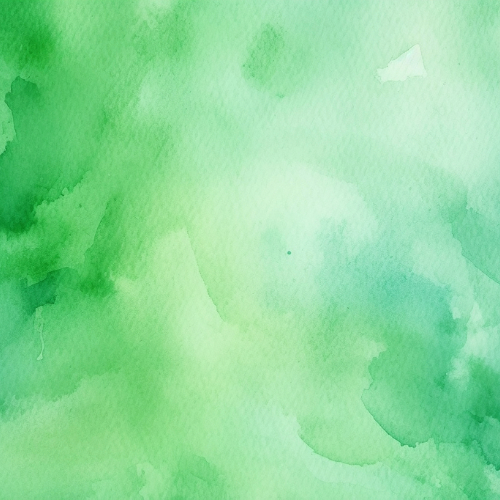The Odd Man and the Sea
Short story
by Oleg Daugovish
I fish from my surfboard. Nobody else does, except a guy in Brazil who posted clips on YouTube. Like him, I release almost all of my fish, collect dead birthday balloons tangled in the kelp, and try to blend in with the ocean. Just minutes away from the hustle of Los Angeles, lies this tranquil world. I’m a regular in both.
Splish, splash. My longboard cuts through the little ripples, past the angry breakers and into a safe zone. I sit up straight and balance over the rolling waves, as if on a horseback ride.
On my first cast, the rod flexes like a bow. I feel the headshakes on the other end of the line and answer with my own. I lift gently. The halibut is convinced that this is a game and goes up the invisible steps until I slide him on the board.
“Are we done?”
His round eyes stick out like big blueberries from a pancake. I remove the hook, but he lies next to me. For a few seconds we examine each other.
“Go home!” I begin to worry about his lengthy oxygen bath and slide my hand under his flat belly. A tail splash covers my polarized glasses with salty drops. He runs down like a kid skipping steps on the stairs until I can’t see him.
I paddle into the kelp, and it wraps yellow-brown tentacles around my legs when I sit up.
“Glad to see you too,” I answer the hug.
I check every nook in this patch of kelp with my jig, but nobody is home.
“Are there any fish here?” I ask a seal who watches my every move. “There is plenty of bait.”
The seal doesn’t disagree and listens like a patient therapist. Then he lifts his whiskered nose to the sky and disappears under water.
Dolphins bob up and down along the kelp line. They never stop, they can’t. I feel the urge to move, too, and untangle my legs to glide to a clearing in the aquatic forest. On my next cast, the line slacks.
If it’s not hung up on the kelp it means…
I start winding like a madman. The hard jerk on the line almost pulls the rod out of my hands, the reel screams in a fight.
A mighty calico bass runs into the kelp stringers with my jig in his jaws. His buddies follow, trying to grab the hooked piece of plastic from him. I see the checkered pattern of his back under the leaves. Fighting the fish through the kelp is impossible and I stop reeling. I pretend to give up and wait for him to relax. After a minute, the calico thinks he is free and wiggles out into the open water. I swing the rod up and get him on the board before he escapes.
“Today, you are going with me,” I announce.
I twist, trying to grab my fish stringer; it is attached to the board’s leash loop behind me. It is close, but out of reach. I lay down my rod and slide into the water while keeping the fish above it in a reversal of roles. With catch secured, I replace the shredded plastic bait on my hook. My fingers that retrieved it from the jaws are bleeding.
On my next cast, I watch the unnatural neon tail of the bait wiggle towards the bottom. I am as tense as my line, anticipating the next strike, when a sudden loud Pffff behind my back almost makes me wet my wetsuit.
A mountain rises next to me, mist still hanging in the air above it after a blow. It’s black and covered with barnacles.
What if I was on top of that mountain? I’d probably roll down, covered with krill, wash it off and climb aboard to continue fishing. I try to reason with myself. Did I paddle out too far, since the whale is closer to the mainland than I am?
The worried water swirls in odd patterns after the black mountain sinks back into it. I start moving to the shore when it is smooth again.
I stop to catch my breath and my thoughts.
Am I a calico, who stays in the same neighborhood, teaches kids to ambush anchovies and rub fins with young sheepheads in the kelp?
Should I follow the whales, who bring their kids from Mexico to Alaska, hoping that no unstoppable tanker will ram them on the way or that no vicious orca will tear the young ones apart. Do they dream of fertile snowmelt-infused water that reflects white mountains? Of endless summer days, when bears become tired of splashing in the shallows, but the flowers I grew up with never close for the night?
A gentle wave pushes me toward the shore. I bend under the weight of the board with a fish hanging on it as I climb to the parking lot.
A couple of urbanites in brim hats and sandals peek at me when I land at a picnic table. I gulp some warm water from a jug that waited in the car and grab a knife and a cutting board.
“Look, that’s how you get your fresh dinner,” one foodie says to another.
I slide the blade along the calico’s spine.
“What kind of fish is it?” the second hat asks.
“A kelp bass.”
I sling the guts with the tip of my knife and they fly into yellow bloom of a wild mustard.
“Racoons and seagulls will eat ’em.” I act as a casual brute. I grab the fish skeleton by the tail and swing it past the spectators too.
“What do you use to catch the fish?”
“Nuclear Chicken.”
Both frown as if I’m being rude.
People will believe the most outrageous lie but question and reject the truth.
“Aren’t you afraid of sharks?” the second hat changes the subject.
“I paid my dues by getting stung by stingrays, twice. A mistake by a great white would be a bit over the top.” I use a prepared answer to a usual question.
“That sting hurts pretty bad, huh?”
“It’s an anxiety pain. It feels like you are stuck in an L.A. traffic jam, and you need to go to the bathroom really bad. And annoying music blasts from a car next to you.” I try to explain it in familiar terms.
They grin in agreement.
I wash blood off my hands and sand off my feet with leftover water, toss fillets in a cooler, and plop into my car.
Flashing red and white lights behind the curve of the road signal a stop. I see a gray Mazda with a hood squashed into an accordion, the broken wings of the seagull emblem bleeding green and brown. Live seagulls squawk with concern. Humans, crouched with stress, yell into their cell phones. As I wait, I roll down the window and gaze into the blue. In the eternal expanse, a faint fountain rises.
The whales are moving north. I’m not.

About the Author
After completion of Ph.D. in 2001, Oleg Daugovish has been researching the delicate lives of California strawberries. He rushes to tell growers about his discoveries and documents them in peer-reviewed journals. Aside from writing about plants, Oleg completed a humorous 61,000-word memoir about growing up in Latvia during Soviet times and fifteen ten-minute stories of creative non-fiction he’d love to share.


